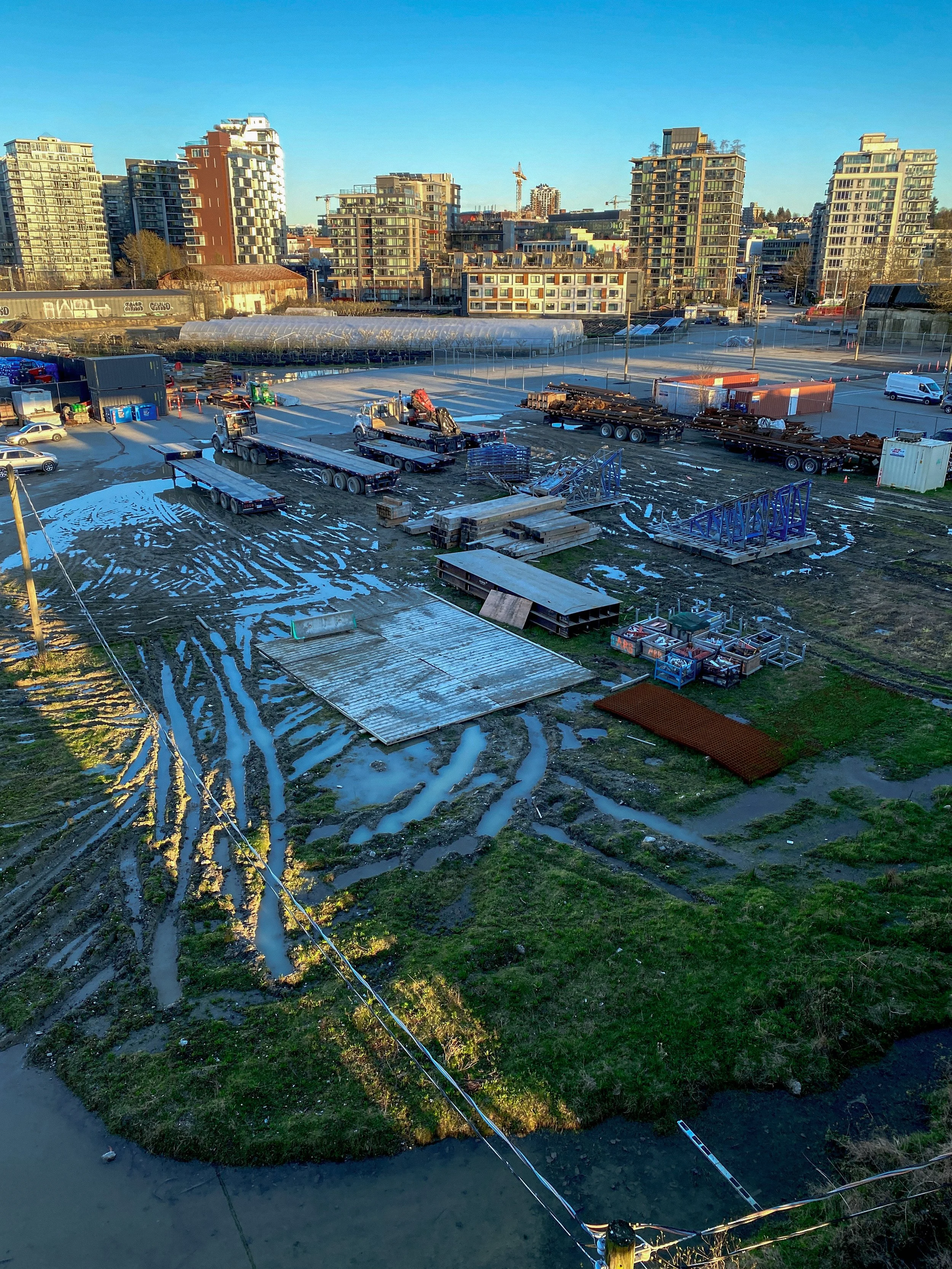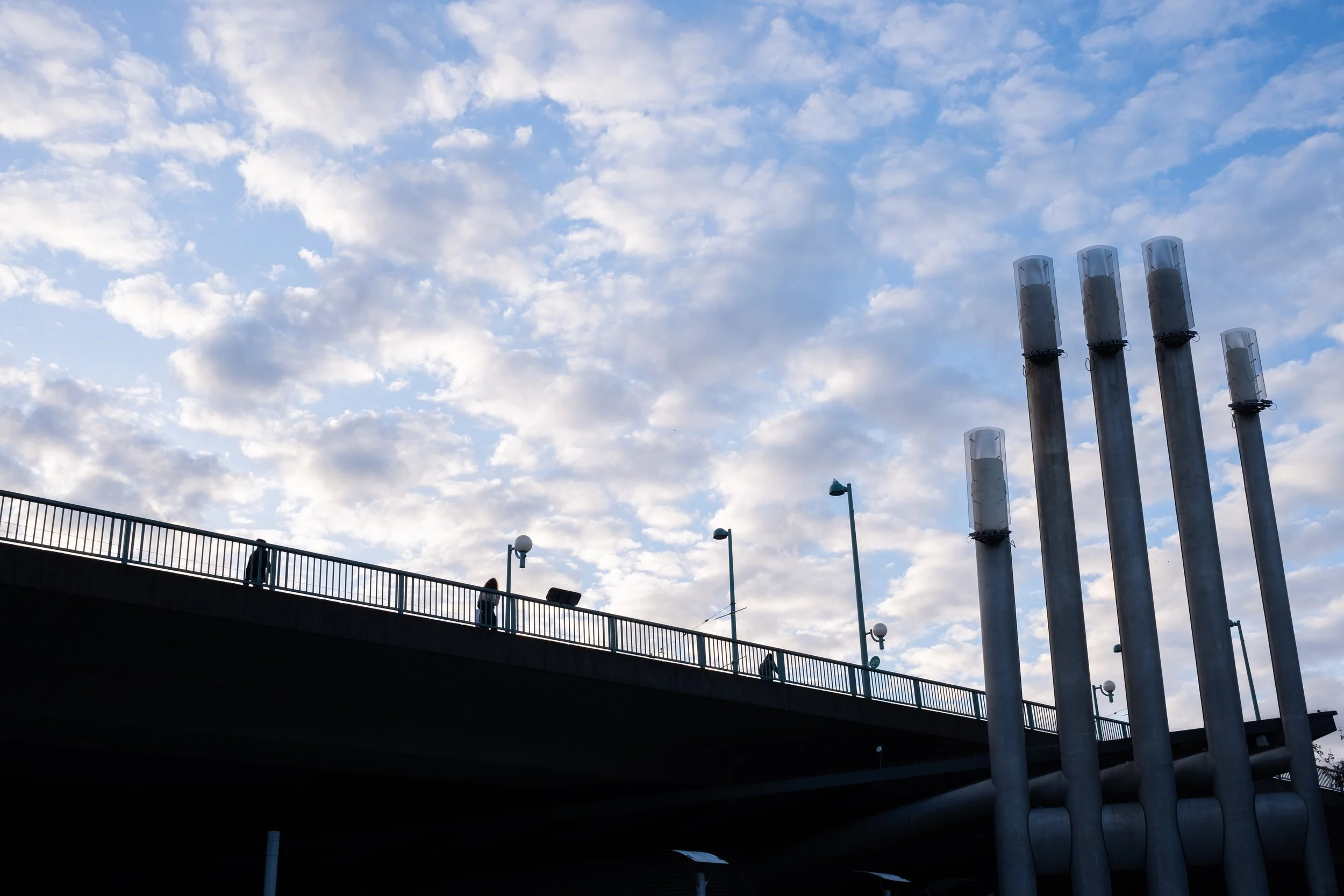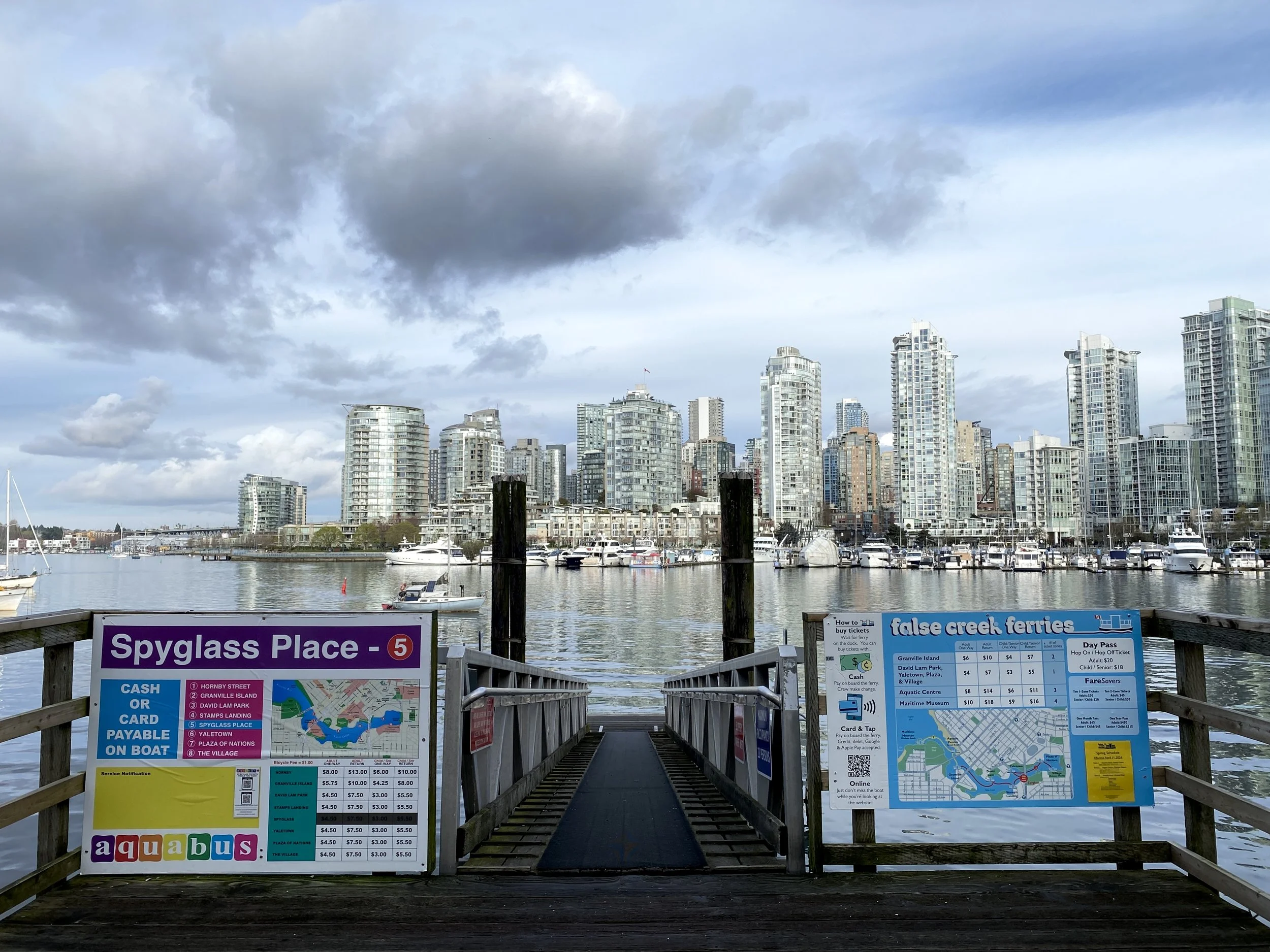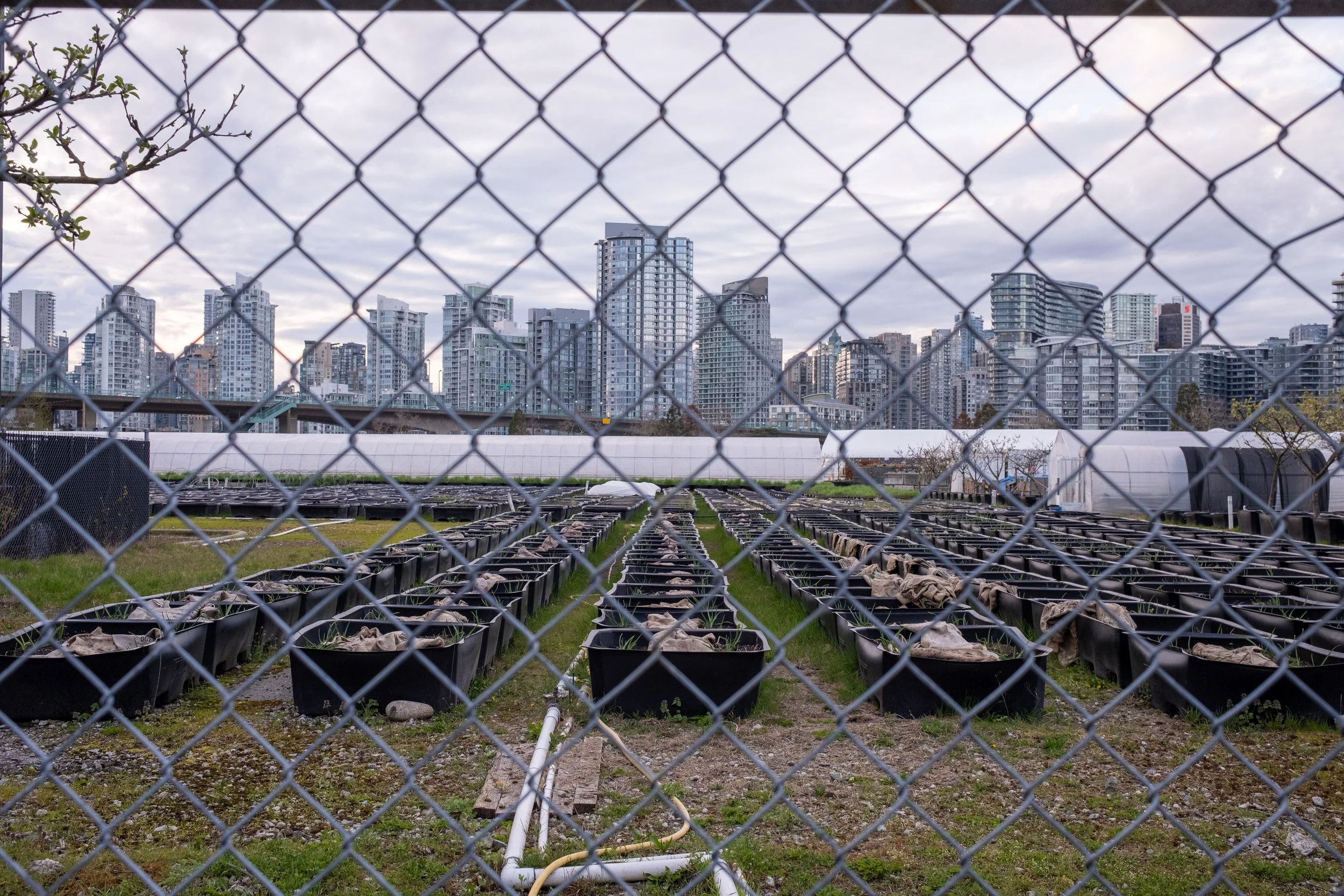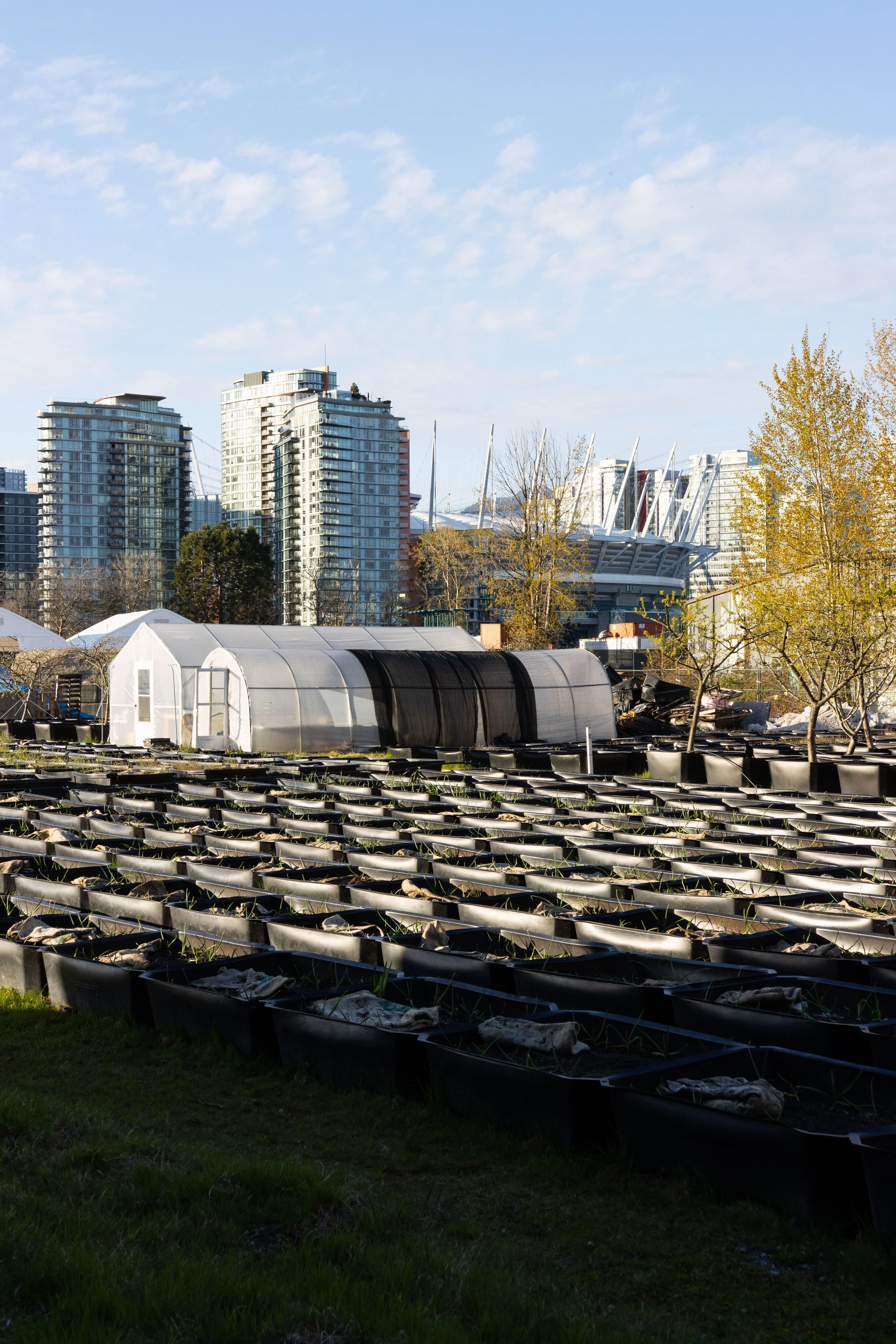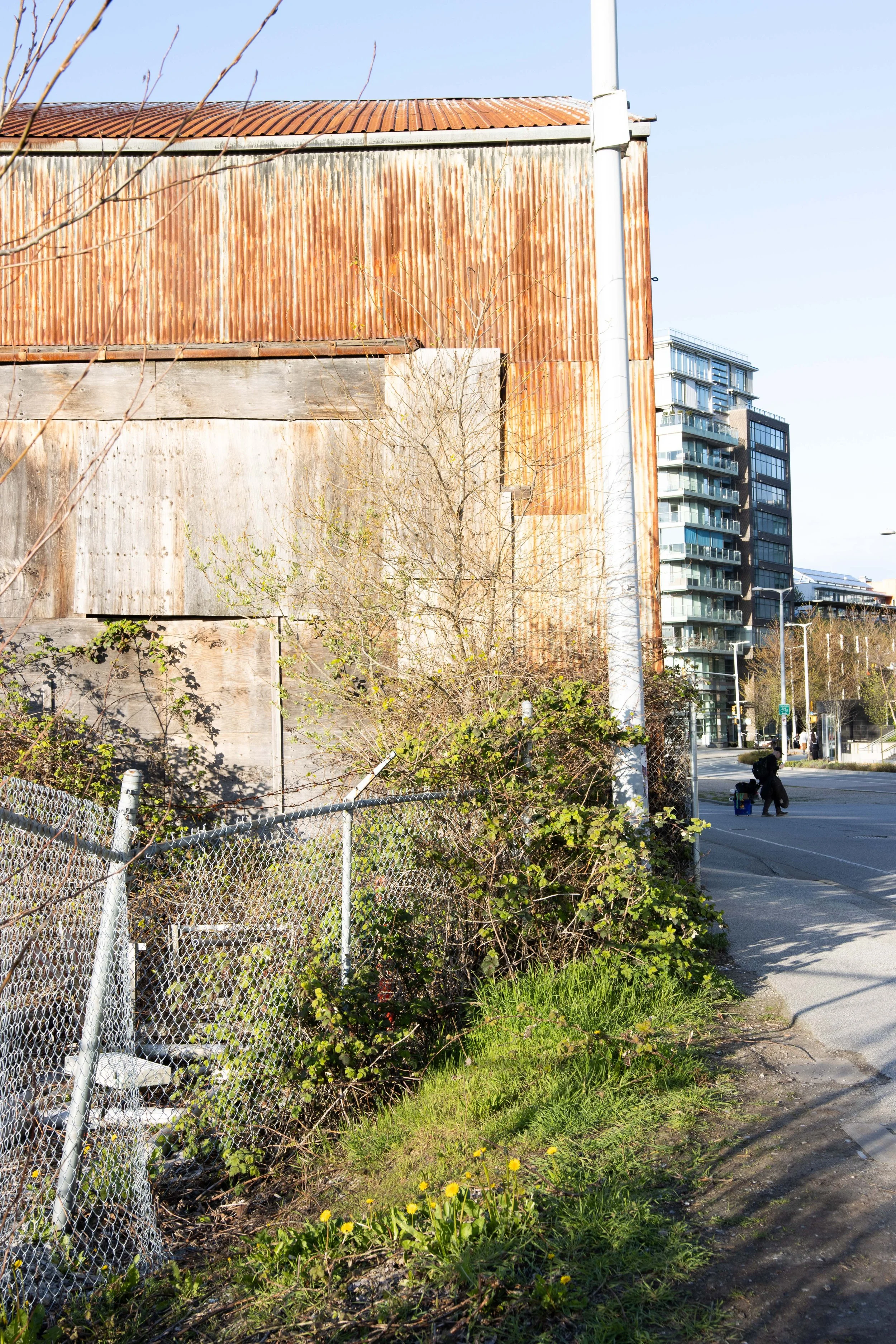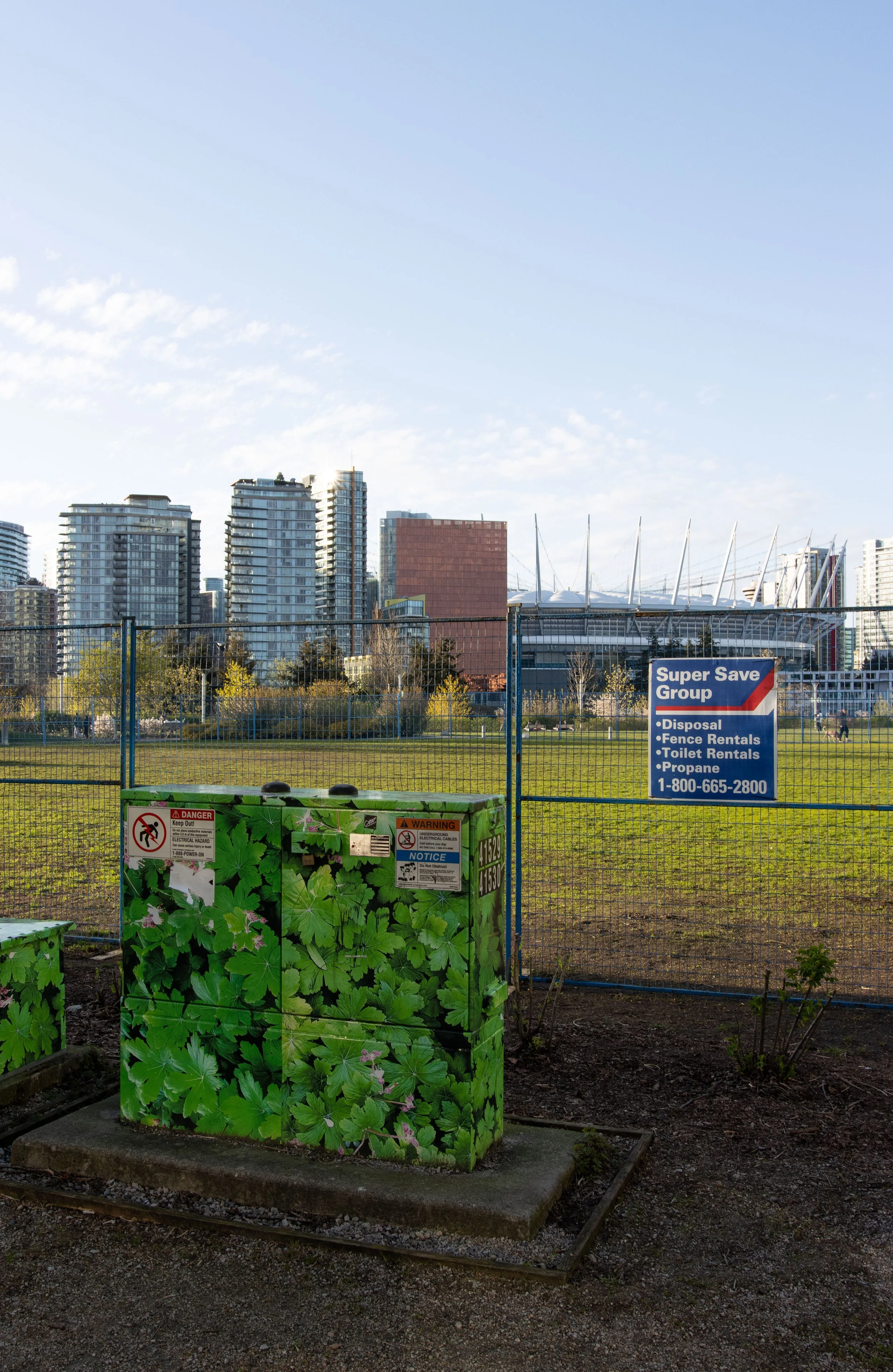False Creek’s liminal spaces reveal Vancouver as a paradox: a city priding itself on livability and natural beauty while undermining both through capitalist urban planning. Despite its reformist, post-industrial identity, Vancouver’s development remains entrenched in colonial capitalist logic, creating either disregarded, abandoned spaces or sterile, unaffordable ones.
My work questions Vancouver’s “Greenest City” branding, exposing the contradiction between progressive efforts and the dominance of predatory capitalism that prioritizes profit over people and planet. By examining spaces touted as beautiful, I reveal cracks in the facade of urban sustainability and challenge the notion that our current built environments truly benefit communities and natural systems.
These photographs invite viewers to reflect on the artificial boundary between “city” and “nature,” revealing how this division perpetuates a colonial imagination that shapes our relationship to land and each other. By exposing the subconscious colonial thinking embedded in our urban design and lifestyles, I challenge viewers to reconsider not only our built environments but also the ideological foundations of our society.
From these reflections can emerge, I hope, an openness to more diverse and localized expressions of urbanity, sustainability, and what constitutes a “good life.” Ultimately, this work calls for a reimagining of Vancouver’s future—one attuned to Indigenous presence and leadership, embracing progressive and emancipatory approaches to urban living.
This change is possible, but requires political will and community dialogue. By confronting the paradoxes and contradictions in our urban landscape, we can begin to envision and create a city that truly honours its natural beauty, prioritizes genuine livability, and fosters a more just and sustainable future for all its inhabitants.
2024
